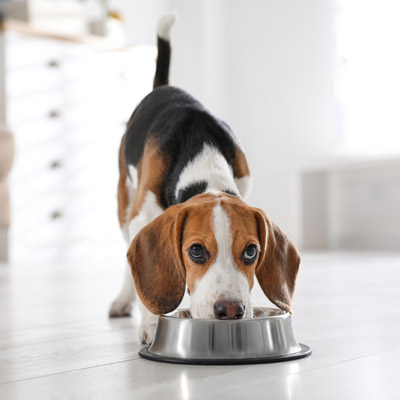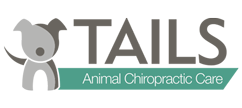Last Updated on 4 months by Dr Alisha Barnes

It’s every pet owner’s worst nightmare. You catch your beloved dog in the act of nibbling something unidentifiable in the yard, or you come home to find a torn-open bag of chocolates strewn across the floor. The panic sets in as you begin to wonder just how harmful the situation might be for your furry friend. In the event your pet ingests a potentially toxic substance, knowing what to do can mean the difference between life and death.
Identifying the Problem
Signs of Toxic Ingestion
Recognizing the signs of toxic ingestion is crucial. Symptoms can range from mild gastrointestinal upset to life-threatening reactions. Watch out for the following:
- Gastrointestinal Distress: Vomiting, diarrhea, drooling, and foaming at the mouth
- Neurological Issues: Stumbling, tremors, seizures, and paralysis
- Cardiac Symptoms: Rapid heart rate, abnormal heart rhythms, or collapse
If you notice any of these signs, act immediately.
Immediate Steps to Take
- Remove the Source: If you can safely do so, take the item away from your pet.
- Collect Samples: If it’s not obvious what your dog ingested, collect any remaining pieces or vomit for the vet to examine.
- Keep Calm: Your pet will pick up on your stress. Remaining calm will help.
- Do NOT Wait: Time is of the essence. Call your vet or a poison control hotline right away.
With the seriousness of toxic ingestion, quick action is crucial.
Actions to Take
Contacting a Veterinarian
The vet should be your first point of contact. Be prepared to provide information such as your dog’s breed, age, and weight, as well as the type and quantity of the substance. Your vet can recommend whether you should bring your pet in, induce vomiting, or provide supportive care at home.
Inducing Vomiting (if advised by a professional)
Vomiting can help expel the substance before it is absorbed into the body. It’s important to note that inducing vomiting is not safe for all substances and should only be done under the guidance of a veterinarian. For example, vomiting can be fatal if the dog ingested something corrosive, like a cleaning product.
Providing Supportive Care at Home
Your vet may recommend feeding your dog activated charcoal to bind the toxin and prevent it from being absorbed. Hydration is also key to helping the body flush out the harmful substance. Be vigilant for further symptoms and ready to return to the vet if things don’t improve.
Expert Advice
Meet Dr. Alisha Barnes, Pet Chiropractor
Dr. Alisha Barnes brings a unique perspective to pet health and safety as a pet chiropractor. She’s an invaluable resource for pet owners concerned about their dog’s well-being after a toxic incident.
Benefits of Pet Chiropractic Care Post-Vet Visit
While a vet can treat immediate health concerns, pet chiropractic care can help regulate your dog’s nervous system, ensuring a swift and complete recovery. Dr. Barnes can restore balance and proper movement to the spine, allowing the nervous system to function optimally and boosting your pet’s own healing capacity.
After your pet has received the all-clear from their veterinarian, Dr. Alisha Barnes can step in to complement the treatment with her expert chiropractic care. Her focus will be on relaxing your pet’s neuro-musculoskeletal system – which can often be stressed or injured during a toxic ingestion incident. Through gentle adjustments, Dr. Barnes works to realign the spine and relieve any discomfort, ensuring your dog’s nervous system operates smoothly. This specialized care not only aids in full physical recovery but also helps your pet return to their energetic, vibrant selves. Under Dr. Barnes’s care, your pet can recover the balance and ease necessary for a healthy, happy life – hopefully steering clear of any future toxic snacks!
Prevention and Further Resources
In the midst of a crisis, it’s easy to forget that the best defense is a good offense. Consider these preventative measures:
- Pet-Proofing Your Home: Keep harmful substances out of reach and secure trash cans and food storage areas.
- Regular Health Check-ups: Routine veterinary care can catch potential issues before they become emergencies.
- Contact Dr. Alisha Barnes: Add her contact information to your emergency list, right next to your vet’s number.
Pet Chiropractic After An Incident
In the event of a toxic incident, swift and informed action is paramount. This guide equips you with the knowledge to tackle the situation and emphasizes the role of professional care in nursing your pet back to health. Remember, you are your dog’s first line of defense, and preparedness makes for a better outcome.
Your veterinarian is undoubtedly the primary point of contact and support during and immediately after any toxic ingestion incident involving your pet. They provide crucial initial treatments and advice that could be lifesaving. However, once your vet has assessed the situation, treated your pet, and given the clear signal, it’s worthwhile to consider additional steps to ensure your pet’s full recovery. Pet chiropractic care comes into play here as a valuable follow-up treatment. Focusing on rebalancing your pet’s health and promoting optimal healing, a skilled pet chiropractor like Dr. Alisha Barnes can work wonders to get your furry friend back in tip-top shape. This approach complements traditional veterinary care by aiming to restore balance, reduce stress on the pet’s body, and ultimately support a faster and fuller recovery.
Don’t wait to ensure your pet’s full recovery and well-being after a toxic incident. Contact Dr. Alisha Barnes today to book your pet’s chiropractic appointment and give them the comprehensive care they deserve.
